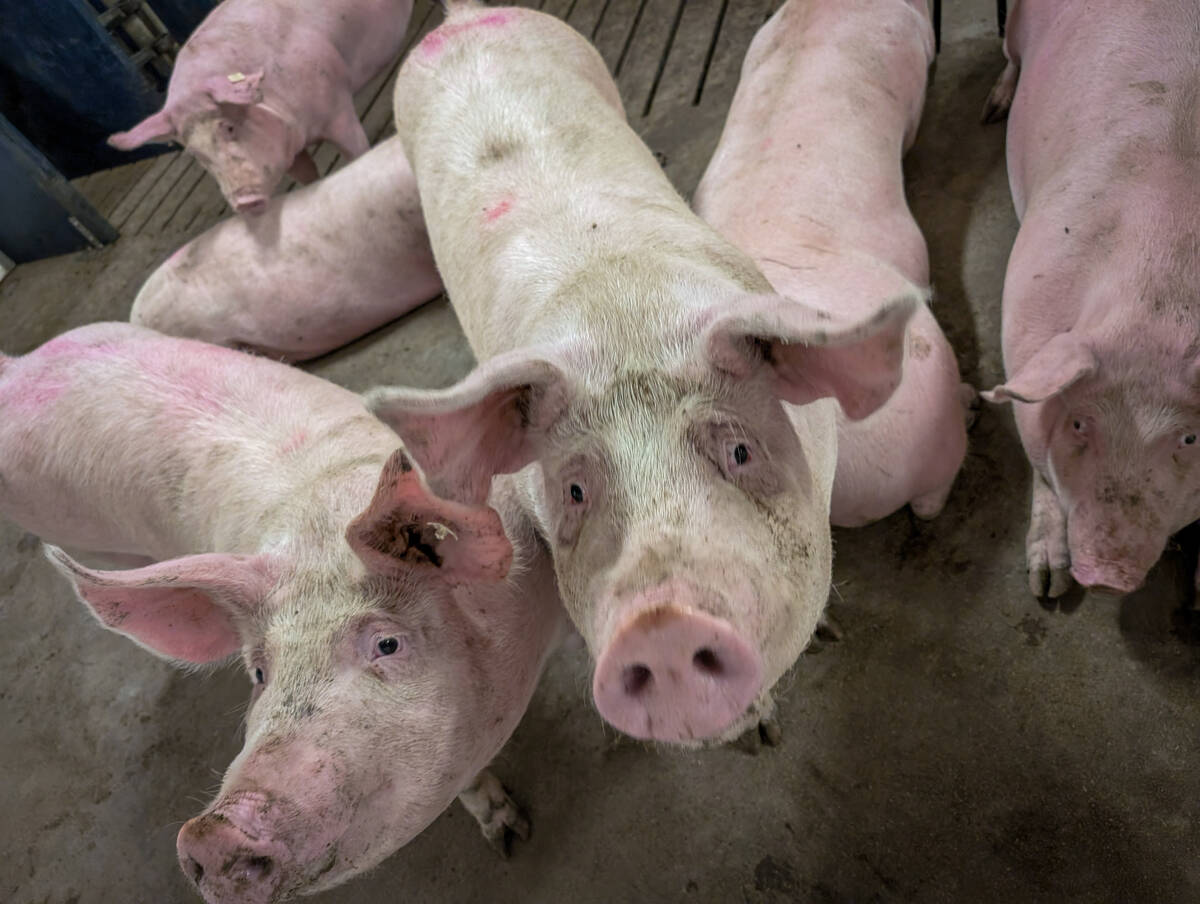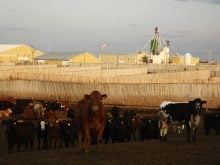Brent McBean says he agreed to evaluate a preliminary food safety program on his farm last year because he wanted to be at the front of the parade rather than trailing it.
The program, which was designed for grain, oilseeds and pulses, required a disciplined approach to record keeping and a session with a specially trained auditor who visited McBean’s farm.
“A lot of it was things we already keep in our record keeping,” said McBean, a mixed farmer from east of Strathmore, Alta.
The grain program demanded written records of all activities, including timing and levels of pesticide application, chemical lot numbers, weather conditions during application, farmer training, condition of grain bins, equipment cleaning and calibration and rodent control.
Read Also

Pork sector targets sustainability
Manitoba Pork has a new guiding document, entitled Building a Sustainable Future, outlining its sustainability goals for the years to come.
After one year on the program, he sees room for improvement and streamlining. His ideas have been forwarded to the Canada Grains Council, which is responsible for the program.
“It’s good to be involved early because if you get involved late, everything has been decided,” he said.
Driven by the federal agricultural policy framework, the program shifts the burden of proof to Canadian farmers, who must guarantee all food produced on their farms is as clean and safe as possible. The program wants farmers to establish hazard analysis critical control points on every area of the farm.
While the program is voluntary, farmers may not be allowed to sell their products in the future to some markets without certification and source verification.
“We won’t have a choice if we want to sell our product,” he said.
“This isn’t coming from the bottom up, it is coming from the top.”
He said the demands may be too great for some farmers, but without compliance they could be shut out of their marketplace. Feedlots, feed mills, maltsters, crushers and other processors must also have plans in place, so that ultimately they will only buy from certified suppliers.
Albert Chambers, who is working with the Canadian Federation of Agriculture to build a basic program that can be adapted to fit individual sectors, said that while most producers are already conscientious about their practices, the program places even higher demands on them.
So far, 19 national commodity groups are designing programs from the suggested model.
The Canadian Food Inspection Agency then reviews the technical requirements for each program.
“CFIA is involved because the national commodities requested the agency be involved in assessing each group’s requirements,” Chambers said.
The CFIA review determines whether the program requirements are technically sound and if they use HACCP strategies appropriately, and make sure that all the requirements are translated properly for use on the farm. Each commodity group then trains and assigns auditors to visit and validate farms for certification.
There is no deadline to complete the programs, but Chambers expects most should be ready for technical review by the end of 2003.
“The future farm is going to be linked to these new management approaches,” he said.

















